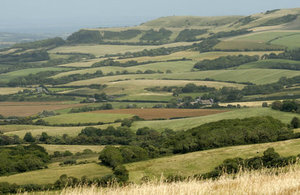New low-fare, high-frequency ‘Superbus’ networks, Britain’s first all-electric bus town, better information for passengers, and contactless payment on every city bus are announced today (30 September 2019) by the Transport Secretary, Grant Shapps, in a major package of new measures to boost buses.
The package, worth £220 million in the first year, will see many cuts to services reversed. It will create ‘express lanes’ for buses in the West Midlands and elsewhere. It will invest in new ways of providing more frequent public transport in the countryside and other places where conventional buses have dwindled or disappeared. And new apps will also be developed that draw together information on bus routes, fares, and timetables from different bus operators across England into one place.
The government will also commit to the UK’s first-ever long-term bus strategy and funding settlement, including support for local authorities who want to create London-style franchised services in their areas.
Superbus networks will have low fares and there will be more bus priority measures to speed up journeys and make them more reliable.
The first Superbus network will be introduced across the county of Cornwall. The fares pilot is part of a project which is improving the quality, frequency and capacity of rail and bus services to create an integrated public transport system for Cornwall.
Buses are disproportionately used by people on lower incomes and Cornwall has been chosen as a county with significant deprivation and social exclusion. For many people, the cost and difficulty of travel is a major barrier to getting work. The Superbus service will connect them with jobs, education and evenings out.
Other Superbus networks will be rolled out next year, with the focus on places that suffer similar problems and where better public transport could significantly improve people’s lives, and will consider improvements in frequency and bus prioritisation.
The package also includes over £20 million for new bus express lanes in the West Midlands to make their buses, which carry over one million people per day, faster and more reliable.
A further £30 million will be paid directly to local authorities in 2020 to 2021, to help them improve current bus services or restore those that have been lost.
Britain’s first all-electric bus town will see an entire place’s city buses changed over to wireless electric vehicles. Country buses will be hybrids, using electric power within the built-up area and diesel outside. Pollution and operating costs will be dramatically reduced. The location is still being discussed with local authorities and operators and will be announced later.
The long-term funding package will be announced as part of the 2020 spending review. It will set out our plans to support local authorities which want to pursue London-style bus systems in their areas. The area where such proposals are most advanced, is Greater Manchester, which is shortly due to consult on adopting a proposed franchised model in 2020. The package will also support other areas which would prefer to pursue other forms of co-ordination, such as voluntary or statutory partnerships with operators.

